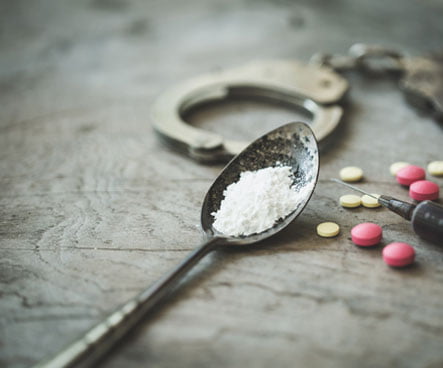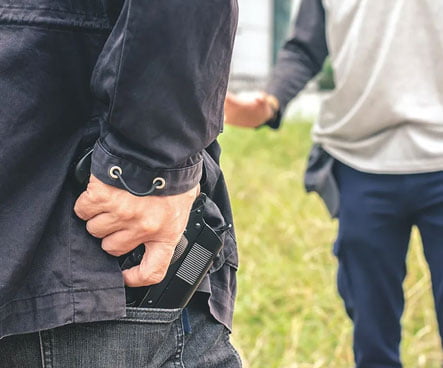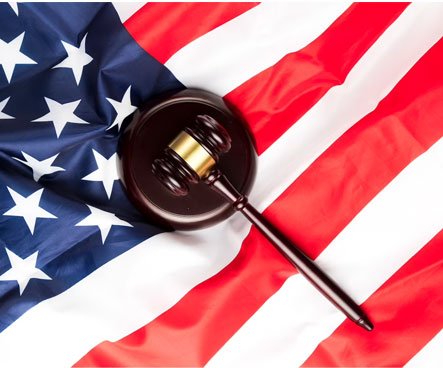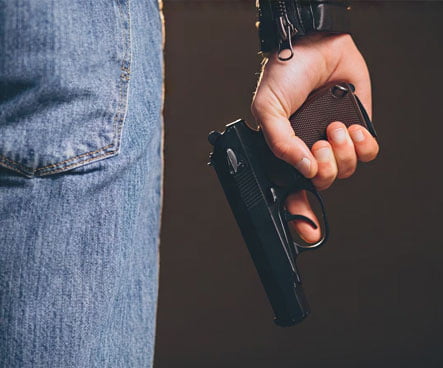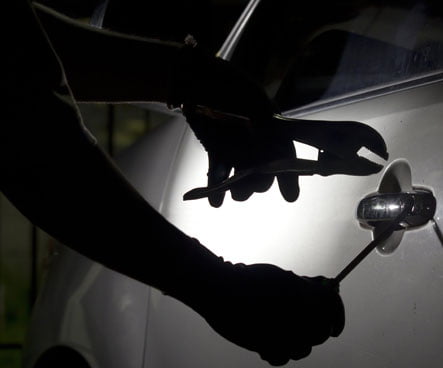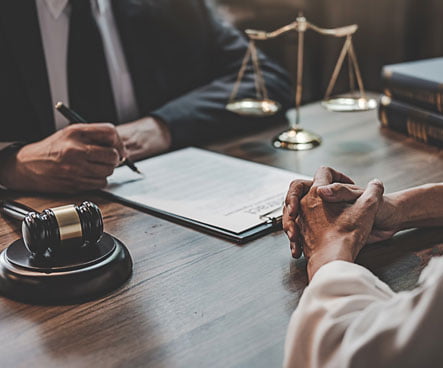Atlanta Possession of Controlled Substance Lawyer
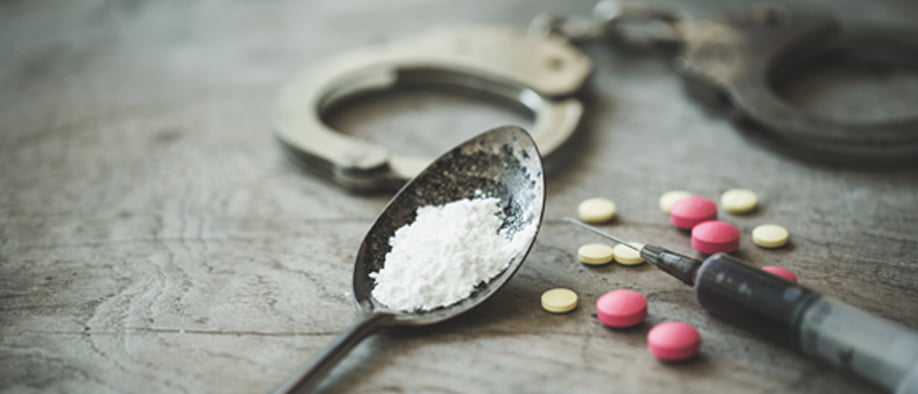
Controlled Substances
Atlanta Possession of Controlled Substance Attorney
Defense lawyer for possession controlled substance in Georgia
Controlled substance charges in Georgia are serious. Prosecutors aggressively prosecute controlled substance charges and don’t easily decide to dismiss or reduce charges. If you are under investigation, or have been arrested, for possession controlled substance you need to hire an experienced drug defense lawyer.
What Is A Controlled Substance?
In Georgia, illegal narcotics, and drugs that require a medical prescription, are considered to be controlled substances. Laws in the State of Georgia classifies controlled substances into 5 Schedules.
Controlled Substance Schedule Classifications
- Schedule I Controlled Substance: drugs (for example, heroin, LSD, mushrooms, ecstasy) are those that are considered to be the most dangerous and having no medicinal value.
- Schedule II Controlled Substance: drugs (for example, cocaine, methamphetamine, Hydrocodone, opium, and Codeine, etc.) are those that are restricted to medical purposes and require a prescription.
- Schedule III Controlled Substance: steroids
- Schedule IV Controlled Substance: Xanax and Valium
- Schedule V Controlled Substance: prescription drugs that have varying potential for abuse.
Penalties for Controlled Substance Charges in Atlanta, GA
Conviction of the unlawful possession of a Schedule I controlled substance, Schedule II narcotic, or Schedule II non-narcotic is a felony with a potential sentence of 2-30 years incarceration.
Conviction of the unlawful possession of Schedule III, IV or V controlled substance is a felony with a potential sentence of 1-5 years incarceration.
Conviction of the unlawful sale or distribution of Schedule I or II controlled substances is a felony with a potential sentence of 1-30 years incarceration. The sale or distribution of Schedule III, IV or V controlled substance is a felony with a potential sentence of 1-10 years incarceration.
Controlled Substance Laws in Georgia
The 2010 Georgia Code, Title 16, Chapter 13, Article 2 covers the regulation of controlled substances in the State of Georgia. Specifically, § 16-13-30 – covers the purchase, possession, manufacture, distribution, or sale of controlled substances or marijuana; penalties. It reads as follows:
O.C.G.A. 16-13-30 (2010)
-
- (a) Except as authorized by this article, it is unlawful for any person to purchase, possess, or have under his control any controlled substance.
- (b) Except as authorized by this article, it is unlawful for any person to manufacture, deliver, distribute, dispense, administer, sell, or possess with intent to distribute any controlled substance.
- (c) Except as otherwise provided, any person who violates subsection (a) of this Code section with respect to a controlled substance in Schedule I or a narcotic drug in Schedule II shall be guilty of a felony and, upon conviction thereof, shall be punished by imprisonment for not less than two years nor more than 15 years. Upon conviction of a second or subsequent offense, he shall be imprisoned for not less than five years nor more than 30 years.
- (d) Except as otherwise provided, any person who violates subsection (b) of this Code section with respect to a controlled substance in Schedule I or Schedule II shall be guilty of a felony and, upon conviction thereof, shall be punished by imprisonment for not less than five years nor more than 30 years. Upon conviction of a second or subsequent offense, he or she shall be imprisoned for not less than ten years nor more than 40 years or life imprisonment. The provisions of subsection (a) of Code Section 17-10-7 shall not apply to a sentence imposed for a second such offense; provided, however, that the remaining provisions of Code Section 17-10-7 shall apply for any subsequent offense.
- (e) Any person who violates subsection (a) of this Code section with respect to a controlled substance in Schedule II, other than a narcotic drug, shall be guilty of a felony and, upon conviction thereof, shall be punished by imprisonment for not less than two years nor more than 15 years. Upon conviction of a second or subsequent offense, he shall be punished by imprisonment for not less than five years nor more than 30 years.
- (f) Reserved.
- (g) Any person who violates subsection (a) of this Code section with respect to a controlled substance in Schedule III, IV, or V shall be guilty of a felony and, upon conviction thereof, shall be punished by imprisonment for not less than one year nor more than five years. Upon conviction of a second or subsequent offense, he shall be imprisoned for not less than one year nor more than ten years.
- (h) Any person who violates subsection (b) of this Code section with respect to a controlled substance in Schedule III, IV, or V shall be guilty of a felony and, upon conviction thereof, shall be punished by imprisonment for not less than one year nor more than ten years.
(i) Except as authorized by this article, it is unlawful for any person to possess, have under his control, manufacture, deliver, distribute, dispense, administer, purchase, sell, or possess with intent to distribute a counterfeit substance. Any person who violates this subsection shall be guilty of a felony and, upon conviction thereof, shall be punished by imprisonment for not less than one year nor more than ten years.
-
- (j)(1) It is unlawful for any person to possess, have under his control, manufacture, deliver, distribute, dispense, administer, purchase, sell, or possess with intent to distribute marijuana.
- (2) Except as otherwise provided in subsection (c) of Code Section 16-13-31 or in Code Section 16-13-2, any person who violates this subsection shall be guilty of a felony and, upon conviction thereof, shall be punished by imprisonment for not less than one year nor more than ten years.
(k) It shall be unlawful for any person to hire, solicit, engage, or use an individual under the age of 17 years, in any manner, for the purpose of manufacturing, distributing, or dispensing, on behalf of the solicitor, any controlled substance, counterfeit substance, or marijuana unless the manufacturing, distribution, or dispensing is otherwise allowed by law. Any person who violates this subsection shall be guilty of a felony and, upon conviction thereof, shall be punished by imprisonment for not less than five years nor more than 20 years or by a fine not to exceed $20,000.00, or both.
- (l)(1) Any person who violates subsection (a) of this Code section with respect to flunitrazepam, a Schedule IV controlled substance, shall be guilty of a felony and, upon conviction thereof, shall be punished by imprisonment for not less than two years nor more than 15 years. Upon conviction of a second or subsequent offense, such person shall be punished by imprisonment for not less than five years nor more than 30 years.
- (2) Any person who violates subsection (b) of this Code section with respect to flunitrazepam, a Schedule IV controlled substance, shall be guilty of a felony and, upon conviction thereof, shall be punished by imprisonment for not less than five years nor more than 30 years. Upon conviction of a second or subsequent offense, such person shall be punished by imprisonment for not less than ten years nor more than 40 years or life imprisonment. The provisions of subsection (a) of Code Section 17-10-7 shall not apply to a sentence imposed for a second such offense, but that subsection and the remaining provisions of Code Section 17-10-7 shall apply for any subsequent offense.
If you are under investigation for, or have been charged with possession of a controlled substance you should call Atlanta possession of controlled substance lawyer Lawrence Zimmerman at 404-351-3000. Schedule a free consultation today.
Drug Charges in Cobb County
State v. PS –
Client accused of selling drugs to an undercover Cobb County narcotics agent on two different occasions while two other agents watched both transactions from across the street. The jury acquitted the client on all counts.
Cocaine Possession
Client charged with possession of cocaine in Cobb Superior Court. Client had a very long criminal history. The prosecutor asked for our client to serve 5 years in prison as a repeat offender. We successfully argued that our client should be sent to a drug rehab facility. The court agreed with us, and he went drug rehab where he was successful.
Office Location
Meet With A Lawyer
Schedule A Consultation
Fields Marked With An “*” Are Required

